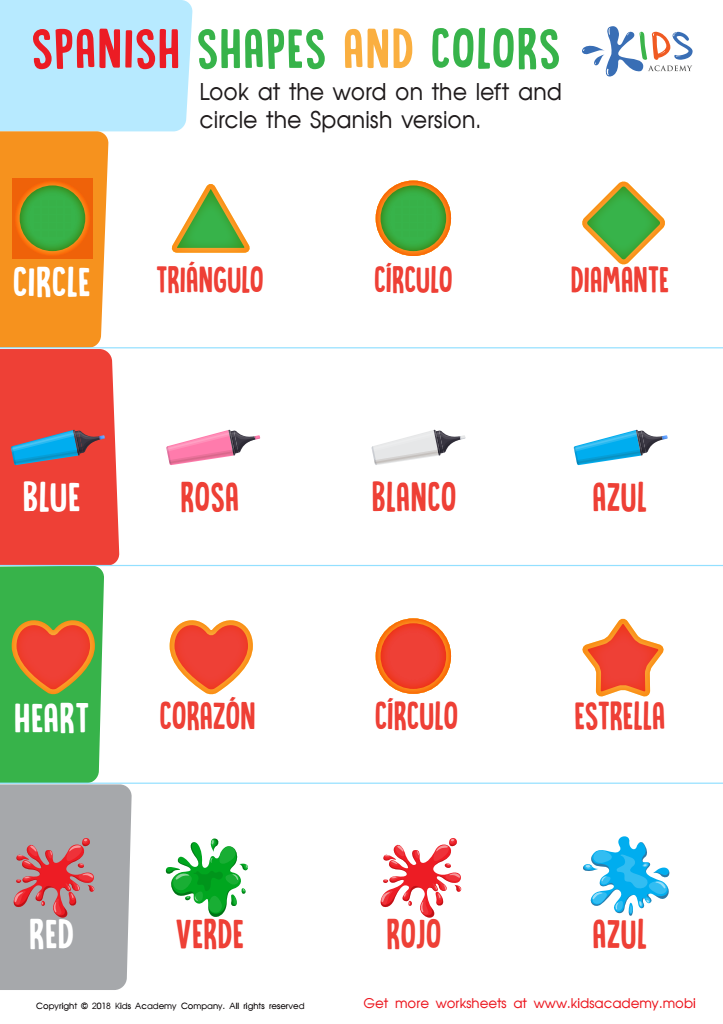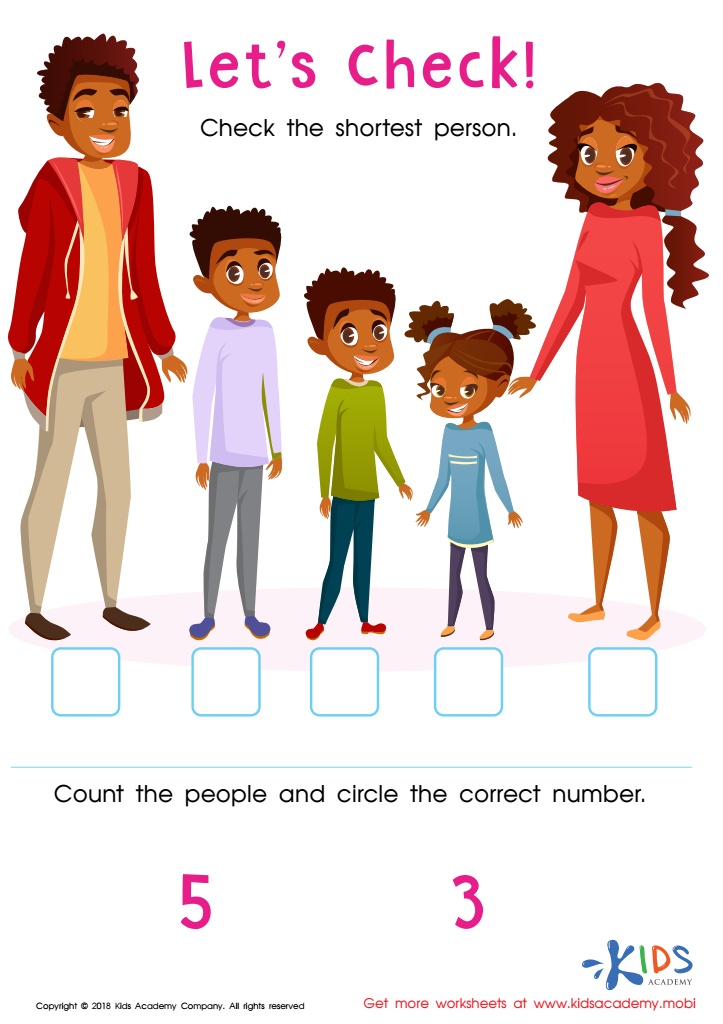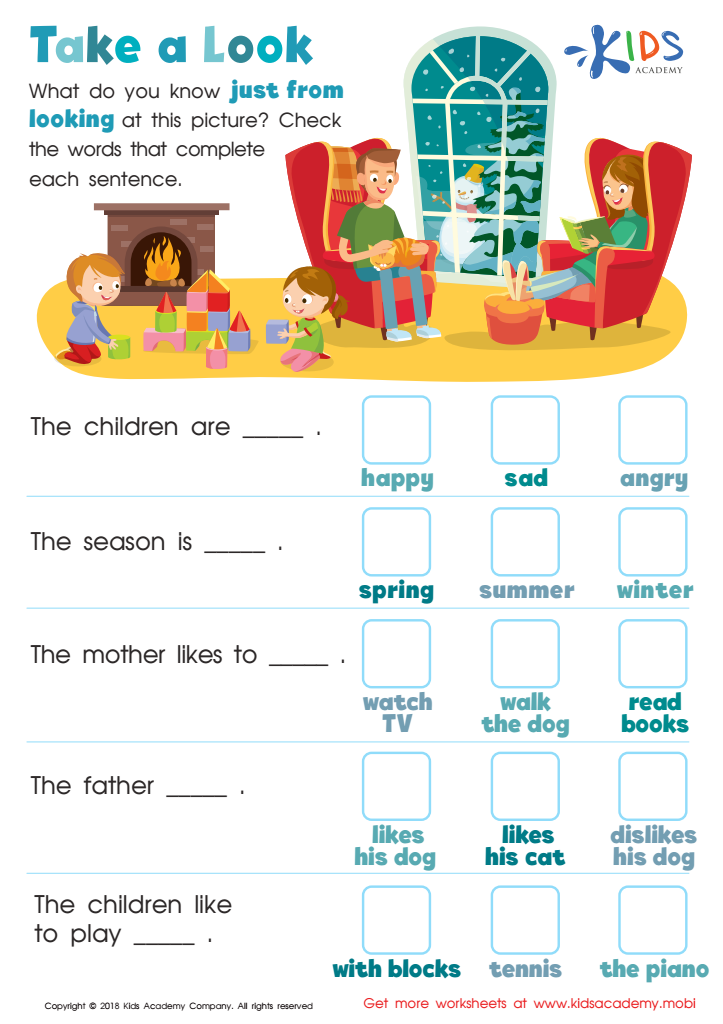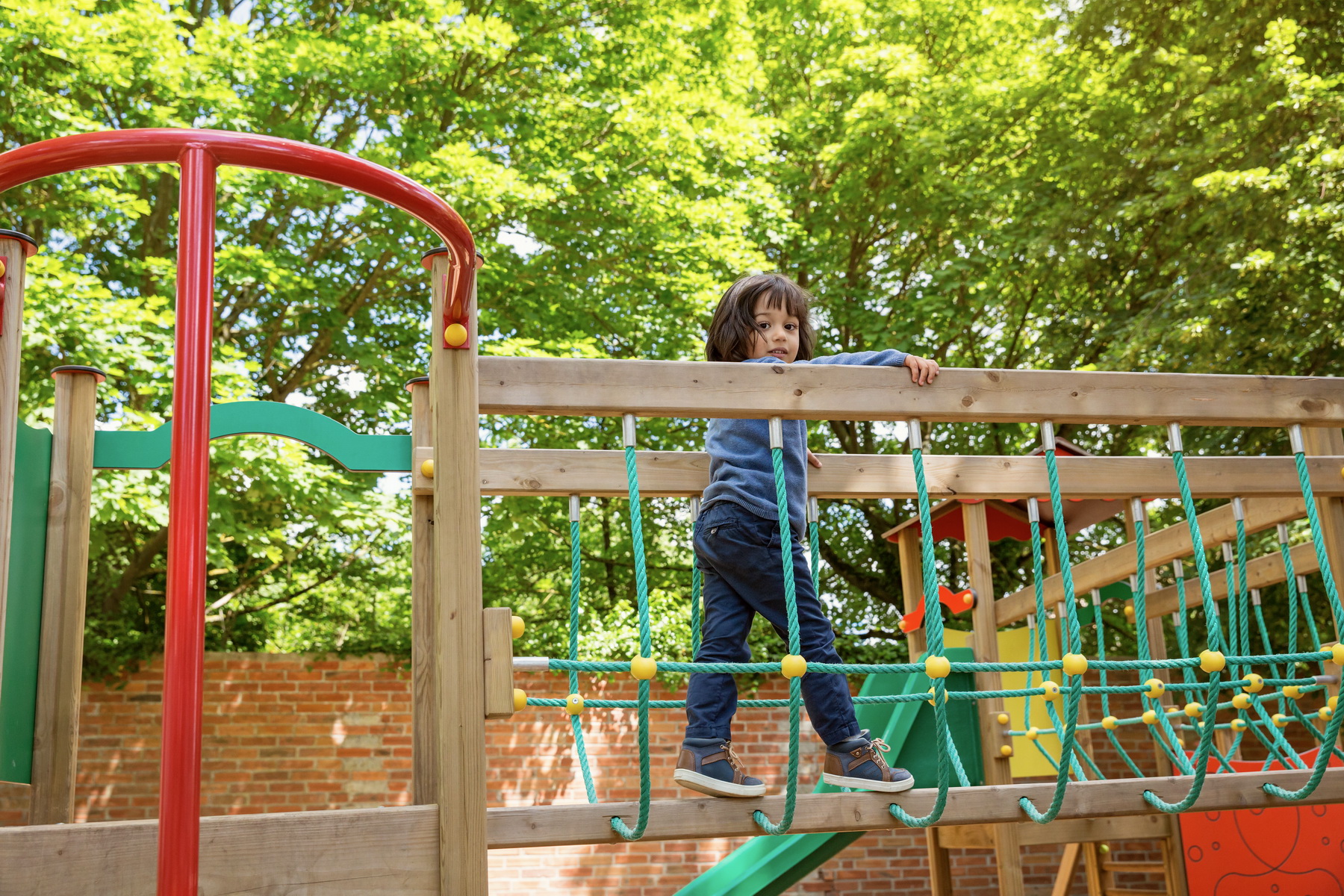Shape Recognition Social Studies Worksheets for Ages 4-8
4 filtered results
-
From - To
Discover our engaging Shape Recognition Social Studies Worksheets designed for children ages 4-8. These interactive resources help young learners identify and understand various shapes while connecting them to their surroundings. Each worksheet incorporates fun activities that promote shape recognition within a social studies context, making learning enjoyable and relatable. As children explore shapes in relation to community, culture, and environment, they build essential cognitive skills while developing an appreciation for the world around them. Perfect for classrooms or at-home learning, our worksheets support early childhood education by fostering creativity and critical thinking. Bring learning to life with our vibrant, educational materials!


Spanish Shapes and Colors Worksheet


Let's Check! Assessment Worksheet


Playground Worksheet


Take a Look - Part 1 Worksheet
Shape recognition is an essential aspect of early childhood education, particularly in the context of social studies for children aged 4-8. It helps develop critical thinking and observational skills that are foundational for more complex learning experiences.
Firstly, shapes are everywhere in our environment, and recognizing them gives children a vocabulary to describe and understand the world around them. For instance, discussing shapes in social studies can enhance their understanding of structures, symbolic representations, and cultural artifacts. Knowing the shapes of various objects can lead to broader discussions about history, architecture, and even geography.
Moreover, incorporating shape recognition in social studies promotes creativity and problem-solving. Children can engage in hands-on activities like building models of historic landmarks using basic shapes, reinforcing their knowledge while stimulating their imagination.
Additionally, shape recognition fosters collaboration and communication skills. Group activities that involve identifying and categorizing shapes can enhance teamwork and discussions among peers.
Lastly, early mastery of shape recognition lays the groundwork for future mathematical understanding. As children progress in their education, these foundational skills will support their ability to engage with more complex concepts. For parents and teachers, fostering shape recognition in a social studies context is vital for holistic development.

 Assign to My Students
Assign to My Students




















